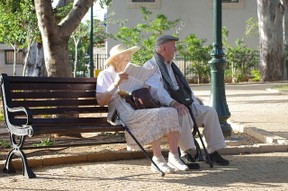 'The days of our years are threescore years and ten; and if by reason of strength they be fourscore years, yet is their strength labor and sorrow; for it is soon cut off, and we fly away.' King James Bible, Psalm 90:10
'The days of our years are threescore years and ten; and if by reason of strength they be fourscore years, yet is their strength labor and sorrow; for it is soon cut off, and we fly away.' King James Bible, Psalm 90:10
For Christians, it sounds like a divine promise. Barring accident or disaster, God has practically signed a contract allocating seventy years to every living individual.
If you went over it, then that was a bonus. If you fell short of it, then you have been robbed of your due lifespan. You died too soon.
Nor do you necessarily have to be Christian to believe in such a random figure. A tacit belief in this reality has left its mark upon our lexicon. We state that people enter 'middle age' somewhere around 35 or 40, because they will die around 70-80 years old.
As medical advances and better living conditions are perceived to raise our life expectancy, then our notion of the middle aged moves accordingly. Life begins at forty, when we still seem so very young. Perhaps fifty, or even sixty, is more like it in 2013.
No. My friend Adam was middle aged at nineteen. He died accordingly at thirty-eight. Little Liam entered middle age at six and a half.
Those telling themselves that sixty years old is the new 'middle aged' are implying something quite remarkable. They, and all their peers, are going to live until 120.
The evidence is against them. Only one person in history ever managed that. Frenchwoman Jeanne Calment celebrated her 122nd birthday, before passing on. Her feat of longevity is generally viewed as an anomaly.
Yet no-one seems to regard her as having somehow cheated in the great stakes of life expectancy. It should be the logical conclusion. If a deceased child died too soon, then Madame Calment must have died too late.
But that is missing the function of the 'threescore and ten', as well as the life expectancy figures. They are rough guidelines, something to aim at, but never a guarantee. They are there as reassurance, but not a promise.
They are psychological touchstones, that shatter us when they're not met; then become meaningless when they're surpassed.
People cling to the belief in 'threescore and ten' years, because it has always been a comfort. Despite the fact that, historically, it was a rare individual who actually reached it. Turning over the statistics, it seems that seventy years old has ever been more about luck than likelihood.
As for beyond that, death appears to be more acceptable. "They had a good innings," we sagely remark, even as we're breaking our hearts. Because then, more than any other time, we need to convince ourselves that death is not random. It comes after a certain age. We are still safely distant from our own end.


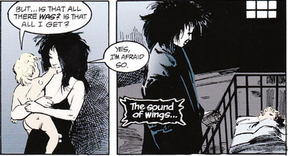 There's a scene in Neil Gaiman's Sandman, which sums it up.
There's a scene in Neil Gaiman's Sandman, which sums it up.


 'The days of our years are threescore years and ten; and if by reason of strength they be fourscore years, yet is their strength labor and sorrow; for it is soon cut off, and we fly away.' King James Bible, Psalm 90:10
'The days of our years are threescore years and ten; and if by reason of strength they be fourscore years, yet is their strength labor and sorrow; for it is soon cut off, and we fly away.' King James Bible, Psalm 90:10
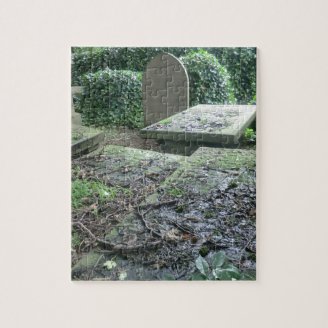
 Once we finish wading through the layers of self-deceit, it becomes obvious that nobody is cheated by a young person dying.
Once we finish wading through the layers of self-deceit, it becomes obvious that nobody is cheated by a young person dying.





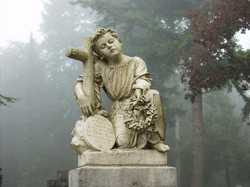

 St Tydecho's Churches in West Waleson 09/03/2014
St Tydecho's Churches in West Waleson 09/03/2014
 Goodies for an Outlander Premiere Partyon 03/06/2015
Goodies for an Outlander Premiere Partyon 03/06/2015
 Holocaust Memorial Day Interview with Rainer Höss, Grandson of Rudolf Architect of Auschwitzon 01/24/2015
Holocaust Memorial Day Interview with Rainer Höss, Grandson of Rudolf Architect of Auschwitzon 01/24/2015
 Romantic Valentine Gifts for an Outlander Fanon 01/16/2015
Romantic Valentine Gifts for an Outlander Fanon 01/16/2015

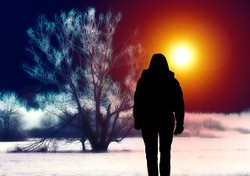

Comments
Everyone on Earth being compassionate at the same time? That truly would be something to experience. Let's start with us and work our way up.
Thanks Jo,
You are right, I feel the pain (joys) of others, read them, know their problems when with them but I cannot be everywhere. I had not been around him for a while. BUT I always reach out and address the energy I receive from others. People are both amazed and relieved to learn someone actually sees their pain, their truth, acknowledges it, validating their reality, that in itself being a huge weight off most. It's not about what we can change it is more about being compassionate, noting the obvious ways we can all bring a bit of light into the lives of others. Imagine if all of us did this and what an impact it could make. So many people would come to know there are those who care about them.
Oh Katie. I didn't even know the lad, but I've got tears in my eyes for him. It feels cruel when young people die, but so much worse when it was at their own hand.
Soul seeking is inevitable, but I think we can drive ourselves insane searching for answers, when we don't even know the questions. I guess that all we can do is look around ourselves often, and hope to notice when those in our vicinity aren't doing so well. Then do our best to catch them.
If we see a wrong, then address it. Reaching out always with kindness, compassion and the loud, clear message that people can come to us, especially if the only other solution appears to be suicide.
But we aren't mind readers and it's none of our responsibility to save the whole world. Just that bit of it within our sphere of influence, coupled with a huge dose of luck.
There's an old prayer that I heard once on a Sinead O'Connor track, which feels quite apt here: God grant me the serenity to accept the things I cannot change, the courage to change the things I can, and the wisdom to know the difference.
I'm sorry to hear of your community's loss.
Just last week one of my 17 year daughters class mates hung himself in a tunnel beneath the bike path were they had jogged, biked and walked all their lives. It was and is earth shattering to the kids, and we adults. This young man is (was) the mirror image of my daughter in male form and this scares the hell out of me. He was a bright and happy child and young man, he and my daughter grew up in school attending gifted programs with advanced course studies. They were into their senior year; stood side by side in the public paper honored as national scholars. They were so close to accepting their international baccalaureate diploma and moving on to their slated Ivy League universities, and yes, he too had received a full ride to the school of his dreams.
He always laughed, was active in school, clubs, family (kind good people) never showed any signs of depression etc. Everyone is still reeling trying to process. The mother of one of our kids, IB, was jogging last Wednesday down that path were we so often do. You see the tunnel is one of those big tunnels running beneath roads, those accessing the bike and jogging path or continuing it across the busy street beneath it. She found David hanging in the tunnel that morning as she turned the corner to enter it.
HE is now dead, I have been so angry since. I cannot figure it out; the police insist it was a suicide to spite the fact there is not a shred of evidence pointing to it. I feel the best and the brightest kids in our community have had one of their own snatched from their tight inner circle with no concrete answer. I have watched them turn inward looking out at the rest of the world with cold glares only talking among themselves. I know they feel, to some degree, like me, mad and unsettled, unwilling to take this as truth. It is very sad to experience the loss of a young person by any means. So many young people are committing suicide and it worries me terribly, are we doing enough, seeing enough, hearing enough, listening good enough?
I heard a saying recently. 'We do not own the world, we borrow it from our grandchildren'. That seems to say a similar thing here.
Emma-Rose, that is one of my favourite quotes. It goes on to indicate by use of metaphor that what we can do is solve the problems now so that those who come after us have better fields to till. This ties in with my ambition to leave the world in a better condition that I found it.
You raise a great point here. Everybody dies too soon, from the point of view of those left mourning them. My Nan, your Dad, all those beloved people should have been immortal. But they're human beings, so they were not.
I do like the exchange between Frodo and Gandalf. Wise sentiments indeed.
Amen to that!
No good act is ever lost. I like the sound of that :) The last two comments from Frank and you, Jo, were so moving. They reminded me of a conversation from a long time ago, with a guy who believed that all the prayers around the world sustained (helped sustain) this world. And I LOVE what Frank says, "that the main talent is to give and receive love. Without this, no other talent has any value." This is really something to think about.
That is such a beautiful way of looking at things. Thank you for articulating it, Frank. You would have made a good priest.
Don't the Jews also say something about there being 'x' amount of truly good people in the world. If there weren't, then the world would end or something. As long as we go on, then we know that those people are with us somewhere.